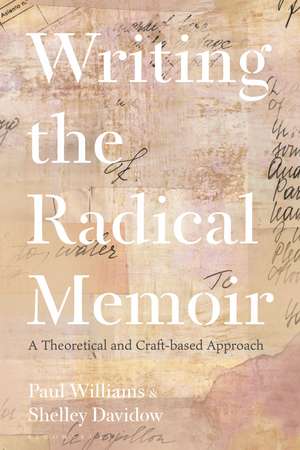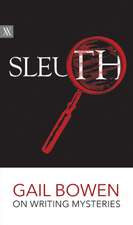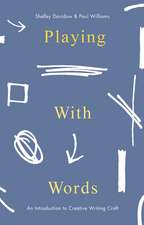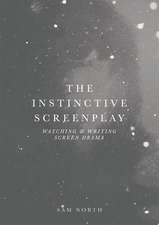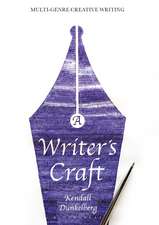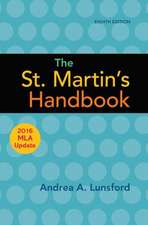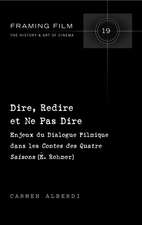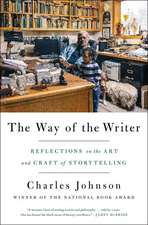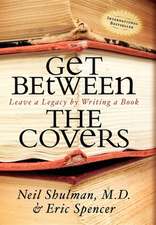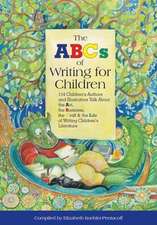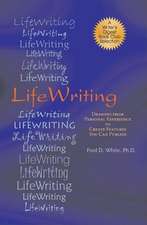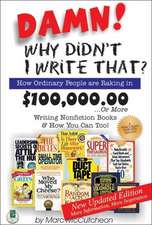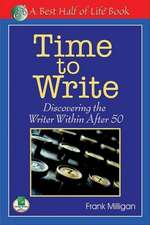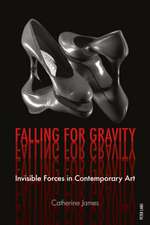Writing the Radical Memoir: A Theoretical and Craft-based Approach
Autor Dr Paul Williams, Dr Shelley Davidowen Limba Engleză Hardback – 17 mai 2023
| Toate formatele și edițiile | Preț | Express |
|---|---|---|
| Paperback (1) | 116.58 lei 3-5 săpt. | +15.78 lei 5-11 zile |
| Bloomsbury Publishing – 17 mai 2023 | 116.58 lei 3-5 săpt. | +15.78 lei 5-11 zile |
| Hardback (1) | 345.58 lei 6-8 săpt. | |
| Bloomsbury Publishing – 17 mai 2023 | 345.58 lei 6-8 săpt. |
Preț: 345.58 lei
Preț vechi: 454.66 lei
-24% Nou
Puncte Express: 518
Preț estimativ în valută:
66.15€ • 71.88$ • 55.60£
66.15€ • 71.88$ • 55.60£
Carte tipărită la comandă
Livrare economică 21 aprilie-05 mai
Preluare comenzi: 021 569.72.76
Specificații
ISBN-13: 9781350272200
ISBN-10: 1350272205
Pagini: 184
Dimensiuni: 156 x 234 x 17 mm
Greutate: 0.44 kg
Editura: Bloomsbury Publishing
Colecția Bloomsbury Academic
Locul publicării:London, United Kingdom
ISBN-10: 1350272205
Pagini: 184
Dimensiuni: 156 x 234 x 17 mm
Greutate: 0.44 kg
Editura: Bloomsbury Publishing
Colecția Bloomsbury Academic
Locul publicării:London, United Kingdom
Caracteristici
Offers a radical and original approach to memoir writing underpinned by postmodern, post-structuralist and neuro-scientific theories and bridges the gap between theory and putting that theory into practice on the page.
Notă biografică
Paul Williams is Senior Lecturer in Creative Writing and Deputy Head of Research in the School of Business and Creative Industries at the University of the Sunshine Coast, Australia. He has published prize-winning fiction, young adult novels, memoir, non-fiction and short stories, a series of crime novels, and textbooks on creative writing including Novel Ideas: Writing Innovative Fiction (2019) and Playing with Words: An Introduction to Creative Writing Craft (2016), co-authored with Shelley Davidow. www.paulwilliamsauthor.comShelley Davidow is an international author of 46 books and Senior Lecturer in the School of Education at the University of the Sunshine Coast, Australia. Recent titles include the memoirs Runaways (2022), Shadow Sisters (2018), Whisperings in the Blood (2016), and the creative writing textbook Playing with Words: An Introduction to Creative Writing Craft co-authored with Paul Williams. www.shelleydavidow.com ; https://www.facebook.com/ShelleyDavidow ; twitter: @shelleydavidow
Cuprins
Introduction: What is radical memoir? Chapter one: The reader/writer contract: how do we write 'truth'?Chapter two: Memoir as cartography: mapping your lifeChapter three: Your life as a hero's journey Chapter four: Memory and neuroscienceChapter five: Turning real people into charactersChapter six: Writing memoir as decolonial, genre-busting and rule-bending actChapter seven: Memoir as erasureChapter eight: Collective memoir: writing with others Chapter nine: AutrebiographyChapter ten: Biographemes Conclusion: The magnificent risk of memoir
